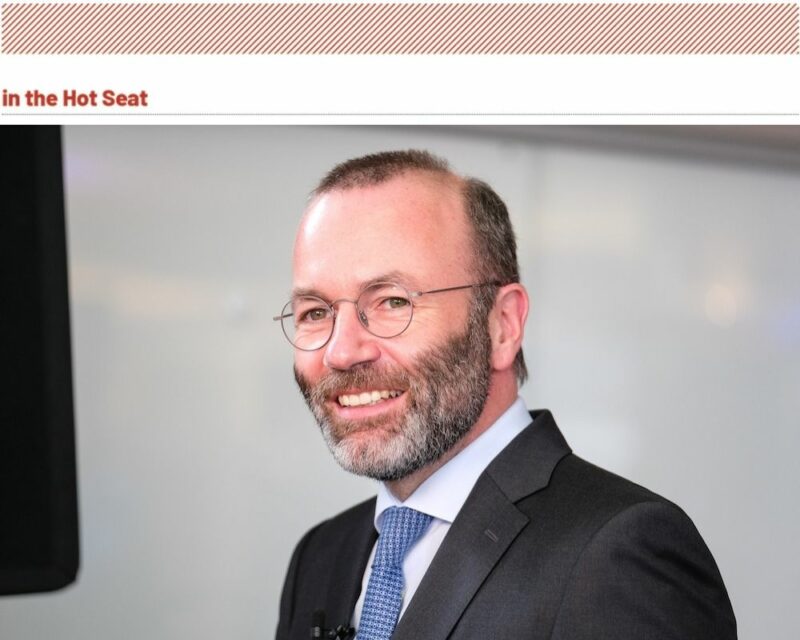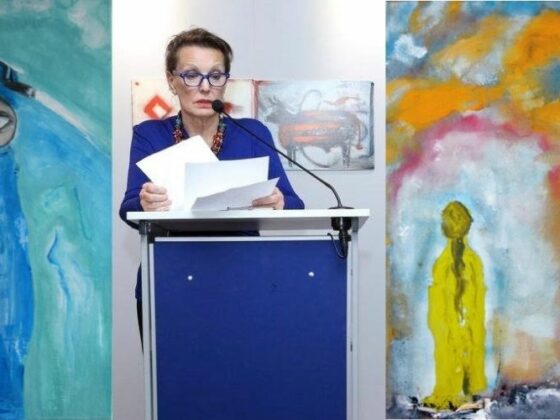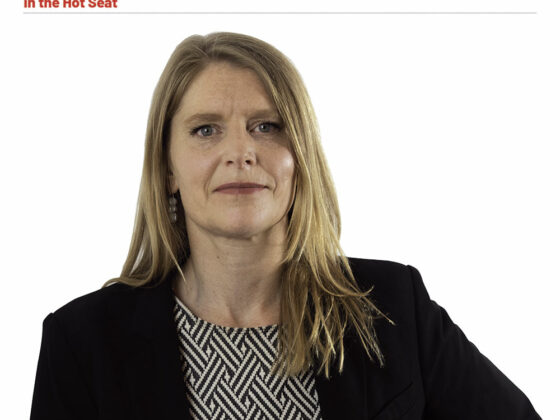Alberto Costa: How was Europe’s Beating Cancer Plan conceived and designed?
Manfred Weber: The European Union is ultimately there to make the lives of Europeans better. For European politicians, this is our end goal. We know that with less than 10% of the world population, Europe has 25% of the cancer burden, which may reach 50% in 2030 if we do not act decisively against the disease. Cancer disrupts the lives of so many Europeans and all of us have been touched by it, too often closely. Therefore, in 2019, we set out to collaborate with several leading experts in the field, to inquire into what are the obstacles health professionals, researchers, patients, survivors and caregivers face in their daily fight against cancer, and how Europe could concretely support them and make things better. For this, the European School of Oncology deserves our thanks for their expert and trusted advice. Indeed this was a first step, but the great resonance of the “EU master plan to join our forces against cancer” among citizens showed we were on the right track in addressing their concerns. The EPP Group is proud that the European Commission is carrying forward this great ambition in this legislative term.
AC: What is the role of the BECA Committee?
MW: Our Group argued for the establishment of a Special Committee on Beating Cancer to provide further input to the Europe cancer plan and follow up closely the elements that require further development. Most importantly, its establishment showed that the cancer fight is not a partisan initiative, but the whole Parliament has taken ownership and everyone is on board. That is what makes us confident of its impact. Through the work of the Special Committee, we want to show the Parliament’s solidarity, but also a deep responsibility towards citizens. It provides an open forum of discussion with experts, patients and all those involved in the continuum of cancer research and care, from prevention, to early detection and treatment, but also on innovation and technology, to finally provide a set of concrete recommendations to Member States and institutions. Much work needs to be done; that is why our colleagues in the committee have pushed for an extension of its mandate until the end of 2021.
AC: How will the Parliament interact with the Health Commissioner Stella Kyriakides?
MW: The EPP Group is particularly proud of having two great ambassadors for the cancer fight who are carrying on this ambitious project: Commission President Ursula von der Leyen and Health and Food Safety Commissioner Stella Kyriakides. Our cooperation is consistent, especially on this particularly sensitive issue of cancer. At Parliament level, the BECA committee, chaired by our colleague Bartosz Arłukowicz, has already had frequent exchanges with Commissioner Kyriakides. The committee is determined to elaborate further on the Commission’s Cancer Plan presented last February, and to contribute to accomplishing its goals. With the Cancer Plan, we have set ambitious targets. Now we must take a step forward, being even more ambitious and focusing on delivery for patients and survivors.
AC: In a public letter signed a few months ago with MEP Antonio Tajani, you mentioned, ‘en passant’, the idea of a European Medical Research Institute in the name of Marie Skłodowska-Curie. Could you tell us more?
MW: In the EPP Group, we believe Europe should drive the key tasks of our time, rediscover its great projects. Investing in innovation in medicine, such as in precision medicine, artificial intelligence and big data, and creating a true European Health Union can be next ambitious goal of European integration. The development of the Covid vaccine is one great example of how much Europeans can achieve when they work together. What this experience shows is that promoting collaboration and supporting research and innovation across Europe can make a tangible difference in people’s lives. This is the idea behind the proposal to create a European Marie Skłodowska Curie Institute for High-Level Research. Its goals would be to bring together our best minds and to attract the best talents, so that we can step up the fight against terrible diseases like cancer, but also Alzheimer’s and infectious diseases like Covid-19. To make it possible, ambitious initiatives such as this must be supported by the appropriate investments. That is why, in the negotiations for the new budgetary cycle, our Group has managed to overturn the European Council cuts and triple health funding. We also fought to bring the EU research and innovation funding back to the level of the initial Commission proposal, and we have achieved that. We are laying the groundwork and are committed to accomplish this: Europe can become the new hub for innovation in health care.
Manfred Weber graduated in physical engineering from the Munich University of Applied Sciences in 1996. In 2002 he was elected as a Christian Social Union member of the Bavarian State Parliament and in 2004 as a Member of the European Parliament, where he has sat on the Committees on Constitutional Affairs, on Civil Liberties, Justice and Home Affairs, and on Regional Development. Weber has been a Member of the Bureau of the European People’s Party (EPP) Group since 2006 and become Chair in 2014.






